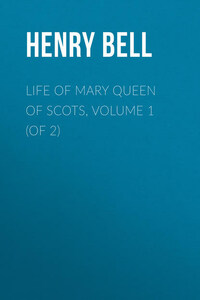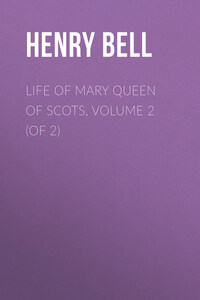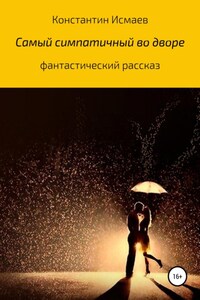A new work on the subject of Mary Queen of Scots runs an eminent risk of being considered a work of supererogation. No period of British history has been more elaborately illustrated than that of her life and reign. She ascended the Scottish throne at a time replete with interest; when the country had awakened from the lethargy of ages, and when the gray dawn of civilization, heralding the full sunshine of coming years, threw its light and shade on many a bold and prominent figure, standing confessed in rugged grandeur as the darkness gradually rolled away. It was a time when national and individual character were alike strongly marked, – a time when Knox preached, Buchanan wrote, Murray plotted, and Bothwell murdered. The mailed feudal barons, – the unshrinking Reformers, founders of the Presbyterian Church, and mailed in mind, if not in body, – the discomfited, but the still rich and haughty ecclesiastics of the Romish faith, the contemporaries and followers of the stern Cardinal Beaton, – all start forth so vividly before the mind’s eye, that they seem subjects better suited for the inspired pencil of a Salvator Rosa, than for the soberer pen of History. Mary herself, with her beauty and her misfortunes, shining among the rest like the creation of a softer age and clime, fills up the picture, and rivets the interest. She becomes the centre round which the others revolve; and their importance is measured only by the influence they exercised over her fate, and the share they had in that strange concatenation of circumstances, which, as if in mockery of the nobility of her birth, and the splendour of her expectations, rendered her life miserable, and her death ignominious.
There is little wonder if such a theme, though in itself inexhaustible, should have exhausted the energies of many. Yet the leading events of Mary’s reign still give rise to frequent doubts and discussions; and the question regarding her character, which has so long agitated and divided the literary world, remains undetermined. It is indeed only they who have time and inclination to dismantle the shelves of a library, and pore over many a contradictory volume, – examine many a perplexing hypothesis, – and endeavour to reconcile many an inconsistent and distracting statement, – who are entitled to pronounce upon her guilt or innocence.
Not that it is meant to be asserted, that unpublished manuscripts and documents, calculated to throw new light upon the subject, slumber in the archives of Government, or among the collections of the learned, which have hitherto escaped the notice of the antiquarian and the scholar. On the contrary, there is every reason to believe, that all the papers of value which exist, have already been found, and given to the world. After the voluminous publications of Anderson, Jebb, Goodall, Haynes, Hardwicke, Strype, Sadler, and Murdin, it is by no means probable, that future historians will discover additional materials to guide them in their narrative of facts. But few are disposed to wade through works like these; and they who are, find, that though they indicate the ground on which the superstructure of truth may be raised, they at the same time, from the diffuseness and often contradictory nature of their contents, afford every excuse to those who wander into error. The consequence is, that almost no two writers have given exactly the same account of the principal occurrences of Mary’s life. And it is this fact which would lead to the belief, that there is still an opening for an author, who would endeavour, with impartiality, candour, and decision, to draw the due line of distinction between the prejudices of the one side, and the prepossessions of the other, – who would expose the wilful misrepresentations of party-spirit, and correct the involuntary errors of ignorance, – who would aim at being scrupulously just, but not unnecessarily severe – steadily consistent, but not tamely indifferent – boldly independent, but not unphilosophically violent.
It seems to be a principle of our common nature, to be ever anxious to wage an honourable warfare against doubt; and no one is more likely to fix the attention, than he who undertakes to prove what has been previously disputed. It is this principle which has attached so much interest to the life of the Queen of Scots, and induced so many writers (and some of no mean note) to investigate her character both as a sovereign and a woman; and the consequence has been, that one half have undertaken to put her criminality beyond a doubt, and the other as confidently pledged themselves to establish her innocence. It may seem a bold, but it is a conscientious opinion, that no single author, whether an accuser or a defender, has been entirely successful. To arrive at a satisfactory conclusion, the works of several must be consulted; and, even after all, the mind is often left tossing amidst a sea of difficulties. The talents of many who have broken a lance in the Marian controversy, are undoubted; but, if we attend for a moment to its progress, the reasons why it is still involved in obscurity may probably be discovered.









